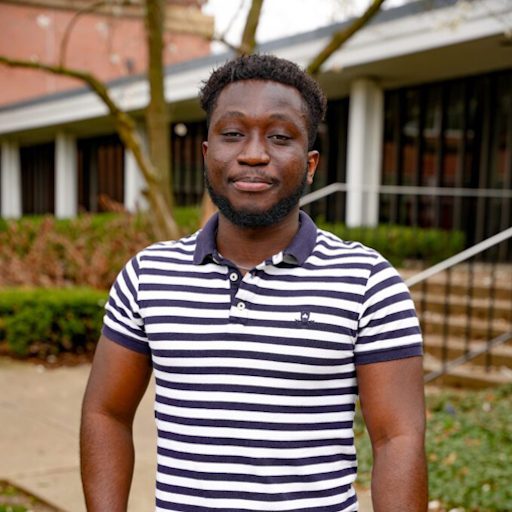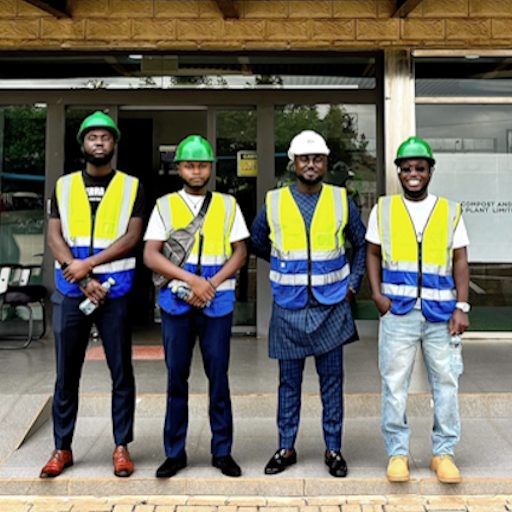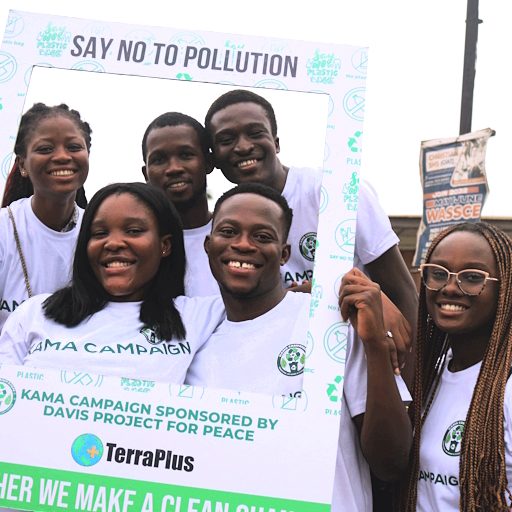Projects for Peace and Earlham Peace Prize
If you’re an Earlham student with an idea for promoting peace anywhere in the world, you can apply for one of two $10,000 grants to make your vision a reality. Our students have led successful grassroots efforts near and far to address structural inequalities and areas of conflict, from Brazil to India to right here in Richmond, Indiana.
Each year, any current Earlham student is eligible to apply to Projects for Peace or for the Earlham Peace Prize. The application process begins in the fall semester of the academic year, and results are given midway through the spring semester. Student grant recipients conduct their projects during the summer months.
If you are interested in applying or want to learn more about these programs, please contact O’Jeanique Twyman or Aidan Carter.
Projects for Peace
Projects for Peace invites undergraduates at American colleges and universities in the Davis UWC Scholars Program “to develop innovative, community-centered, and scalable responses to the world’s most pressing issues.” As a member school, Earlham selects and submits student project proposals that are best suited for acceptance by Projects for Peace. Proposals that are judged to be the most promising and feasible are funded at $10,000 each.

The Kama Campaign: Peacebuilding through Community Waste Management
Eric Ford Twusami ’25
2024 Projects for Peace recipient
As a high school student, Ford knew first-hand of the poor sanitation, waste mismanagement, and resulting health risks in Ayigya Zongo, Ghana. He partnered with the NGO Terraplus Ghana to organize the collection and disposal of waste and recyclables, hiring and training local residents to do the transporting. Key to the project’s success was community buy-in, strengthened through volunteer clean-up days and public education on the health, economic, and relational benefits.
The project’s momentum turned the launch into a major community event with local and national officials and a TV broadcast. The new community-based Kama Club, focused on waste management education and advocacy, and a partnership with a regional waste and recycling plant will help ensure the project’s continuation.


Past Recipients
Discover what Earlham students have been able to accomplish.
2023 – Vaishnavi Walade ’23 partnered with Citizens’ Association for Child Rights to deliver engaging workshops on water conservation and sanitation, waste management and biocultural diversity to children in Uran, India. In learning about environmental care, this generation is also discovering the importance of building cooperative, resilient communities that can peacefully address challenges.
2022 – Wisdom Boinde’s ’23 Maaroŋ Initiative gave women from northern Ghana a chance to escape economic disparity and a future as migrant workers. Partnering with High Morale Academy, which trains female athletes, he developed workshops to assist students in identifying scholarships and creating competitive applications for further education.
2022 – Feven Naba’s ’23 ambitious Techiyalesh Initiative featured the establishment of an academic society for undergraduate Ethiopian women in STEM. Chapters of the new organization were established at several universities, and a mentorship program was launched. Feven collaborated with contacts in both the United States and Ethiopia.
2021 – Ted Jaquet ’23 consulted with Haiti’s National Ministry of Education to create a video curriculum for Haitian high schoolers who could not leave home due to political unrest and Covid 19 lockdowns. Approximately 10,000 students were able to watch recorded lessons in math, physics, economics and chemistry at no cost.
2019 – Maida Raza ’22 and Summia Tora ’20 developed a project entitled Dosti Initiative to foster collaboration between Afghanis and Pakistanis by reaching out to young women. Through education about menstrual hygiene, girls were connected virtually to share their own experiences and learn about common history between the countries.
2018 – Gyeongeun Lee ’20 and Hyeonji Kim ’21 undertook a project working with young adult North Korean refugees in South Korea. They identified a need for cultural exposure and integration and designed and implemented a series of workshops, outings, reflections and discussions though a local university on issues of belonging.
2017 – Peniel Ibe ’17 carried out her project, Young Mothers 4 Peace, in Monrovia, Liberia, focusing on income-generating skills development with a local partner.
2016 – Sonia Kabra ’16 developed the Sisterhood Peace Project to address gender inequality in science, technology, engineering and math (STEM) education through a grassroots initiative in Jalgaon, India.
2019 – Aishat Sadiq ’19 reached out to New York’s immigrant communities through Healing Hearts, Building Bridges. Mental health education and referral services were added to existing resources through parental workshops, group discussion, informative lectures, and methods to strengthen relationships between parents and children.
2018 – Megan Bennet ’20 and Anmol Lamichane ’18 developed a project called Building Global Female STEM Communities in Indiana and Nepal to address some of the reasons why young girls and women are poorly represented in science, technology, engineering and mathematics (STEM) fields/classes in Richmond, IN, and Nepal.
2017 – Daniel Kibet’s ’19 project built a sanitary facility at a primary school in Kapng’etik village in rural western Kenya to promote peaceful coexistence between community members and the local school. He later received a glowing letter updating him, and us, about the results of the project on the community.
2016 – Ananda Mishra ’18 and Maniz Shrestha’s ’19 project, entitled Wireless Education and Women’s Empowerment for Rebuilding Bhimtar, aimed to establish a Center for E-Learning (CEL) with computers, books, and an E-Library system at a local secondary school in Bhimtar, Nepal.
Questions?
For questions regarding Projects for Peace or the Earlham Peace Prize, reach out to O’Jeanique Twyman, director of the Center for Social Justice, or Aidan Carter, assistant director of the Center for Social Justice.